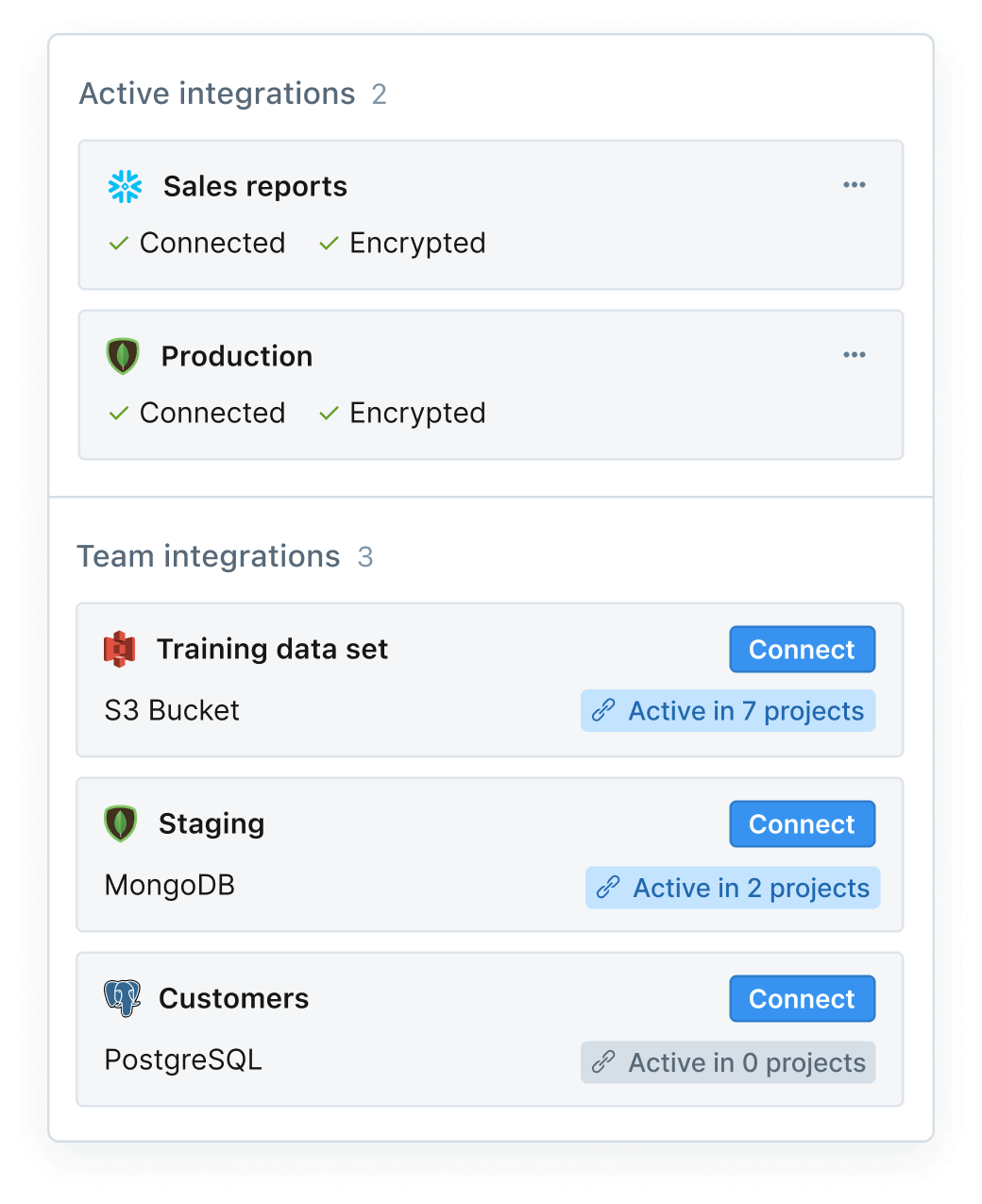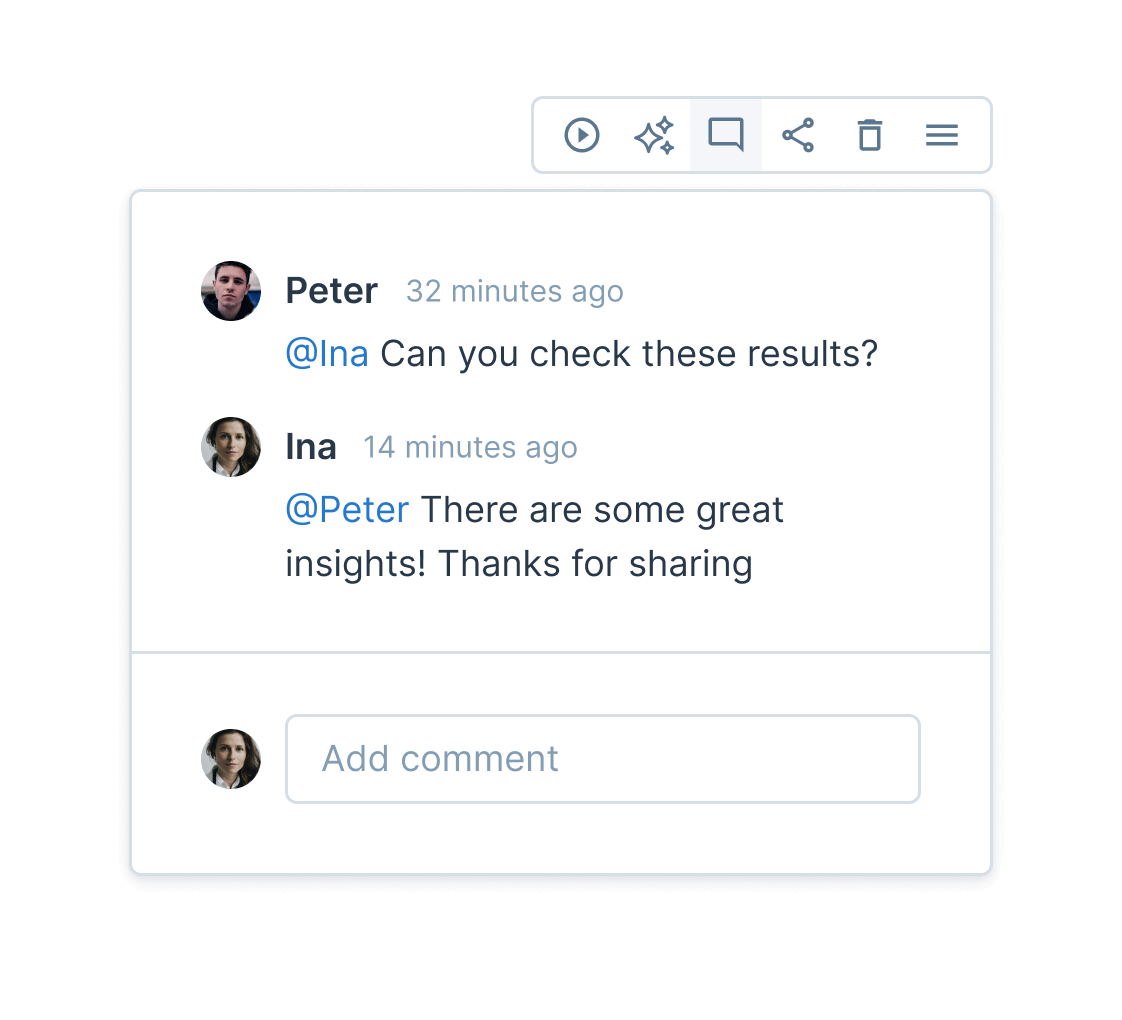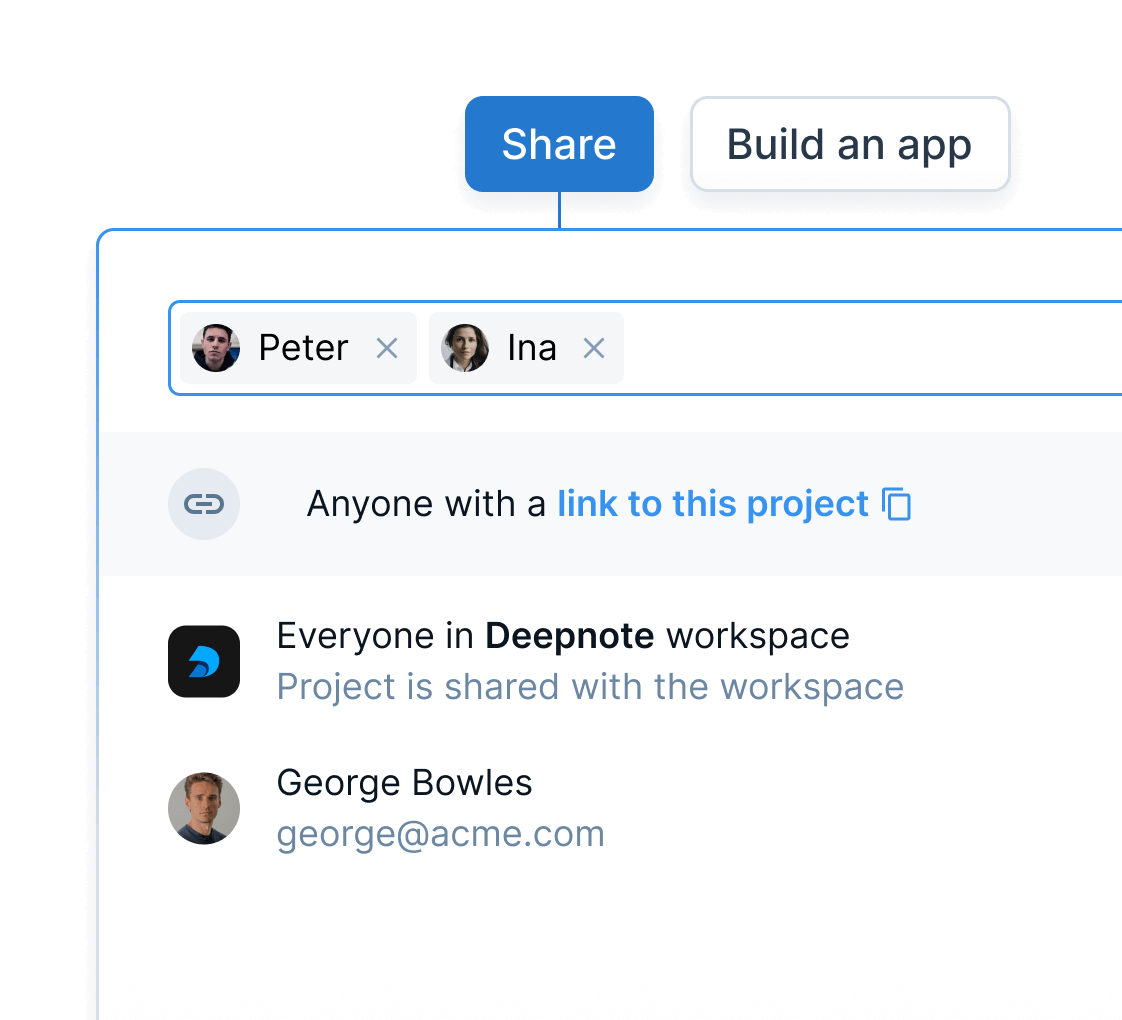Product manager

Don’t jump between multiple apps. Query data directly from your PostgreSQL instance. Switch between SQL and Python in order to transform, clean, and export your data.
Loved by 500,000+ of data professionals
PostgreSQL is an open-source relational database.
When connected to a Deepnote notebook, you can read, update or delete any data directly with SQL queries. The query result can be saved as a DataFrame and later analyzed or transformed in Python, or plotted with Deepnote's visualization cells without writing any code.

Deepnote runs seamlessly in the cloud, making environment management and collaboration with your team a non-issue. And sharing work is as easy as sending a link or email invite.
Product manager



Data scientist
Deepnote works with the tools and frameworks you’re already using and familiar with. Use Python, SQL, R, TensorFlow, PyTorch, and any of your favorite languages or frameworks. Easily connect to data sources with dozens of native integrations.
Browse integrations →